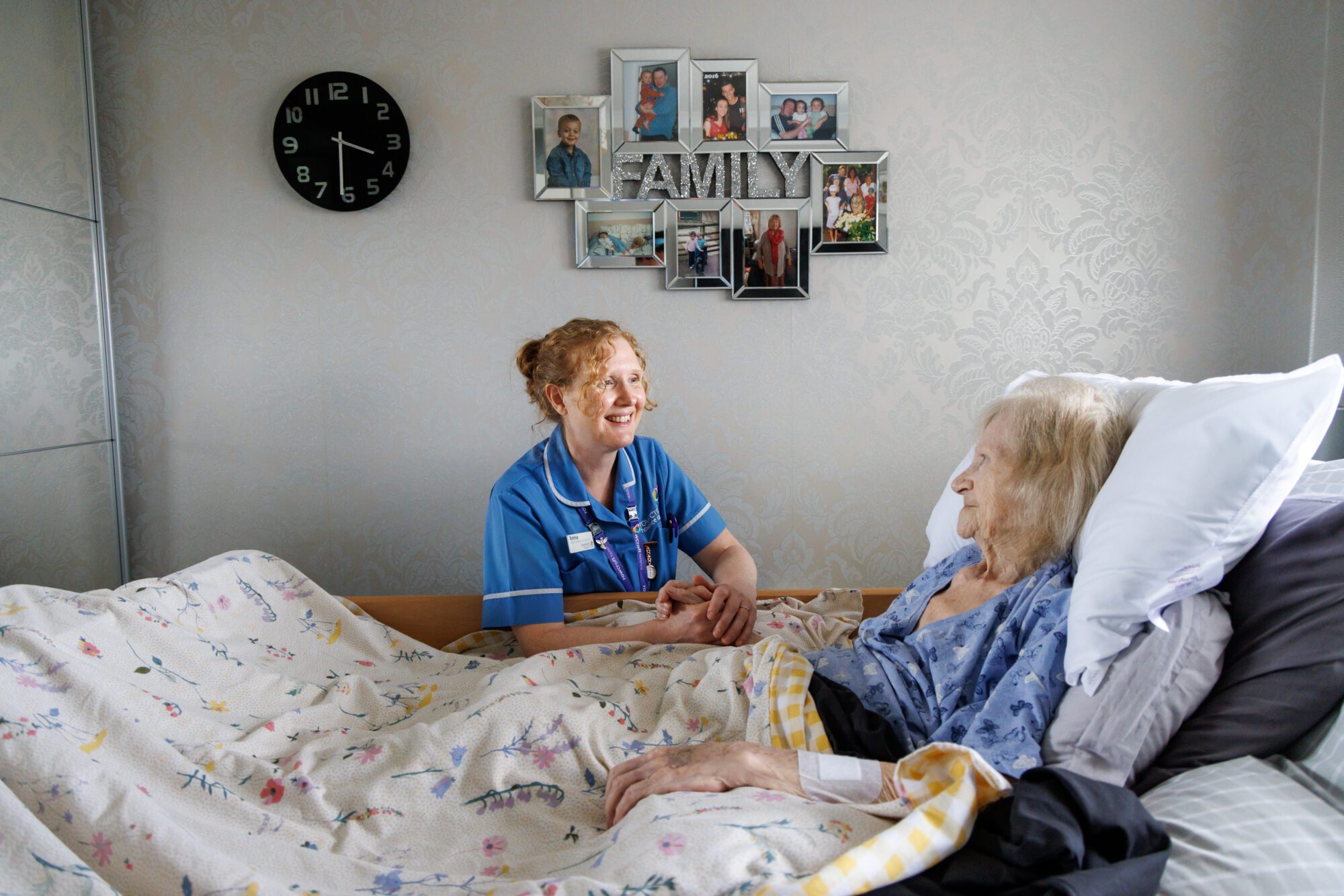80% of healthcare in final year spent in hospitals
A recent report by the Office for National Statistics highlights that while the majority of people at end of life express the desire to die at home, hospital deaths remain prevalent. Earlier this year the Health Economics Unit and Nuffield Trust think-tank found that more than 80% of healthcare costs in the final year of life (£9.6bn) is spent in hospitals, rather than support in the community. This disparity underscores a critical need for enhanced funding of community-based palliative care services, as called for by Rowcroft Hospice.
Proper funding of community-based care could be transformative
“Hospital emergency service use in the final months of life is increasing, placing growing pressure on our already stretched acute services,” said Rowcroft’s CEO Mark Hawkins. “Proper funding of community-based care could be transformative – enabling more people to fulfil their end-of-life wishes, while also helping to ease the strain on NHS resources and reduce overall costs to the health service.”
Respecting patient choice
“Most people express a wish to die at home, and with proper support, this can be achieved,” continued Mark Hawkins. “Every day, we see firsthand the difference it makes when patients can remain at home, surrounded by loved ones and supported by specialist care from our dedicated teams. It’s heartbreaking that over a third of people who pass away in hospital have no friends or family present.”
Hospice funding challenges
Rowcroft Hospice provides specialist care to around 2,500 patients and their loved ones across South Devon each year, with 80% of its patients receiving care in their own homes. However, despite the clear benefits of hospice care in the community, funding remains a significant challenge. Only a quarter of the £11m required annually to fund Rowcroft’s services comes from the NHS; the remainder is generated from fundraising and charitable donations.
The government recently pledged to increase support, but many hospices across the UK are having to cut services due to a lack of funding. While Rowcroft warmly welcomed the government’s announcement that the hospice will receive an additional £159,000 to help improve its facilities, buildings and equipment, the charity warns that sustainable funding is needed.
Responding to an increased demand for care
To add to the challenges, hospices such as Rowcroft are responding to an increasingly ageing population, with the demand for care growing day by day. Not only are hospices witnessing an escalating need, but they’re also noticing that patients are facing more complex symptoms, often from multiple conditions. According to Marie Curie, the need for palliative care across England is expected to increase by 26.5% by 2048.
To address the growing demand for end-of-life care, Rowcroft has plans in motion to develop Lavender Square, a pioneering care home for people with dementia and complex needs. Investing in innovative projects like this will help to reduce NHS costs in the future, and will ensure that people receive the specialist, compassionate care they deserve.
The need for sustainable solutions
In the meantime, Rowcroft Hospice is calling on policymakers to reform palliative care funding in order to develop sustainable, long-term solutions for hospices. This will ensure that more people receive end-of-life care where they want it, while also reducing pressures on hospitals and healthcare budgets.
“The time to act is now,” added Mark Hawkins. “”We cannot afford to wait. By investing in community-based palliative care, we can honour individual preferences and create a healthcare system that is fit for the future and that works for everyone.”

